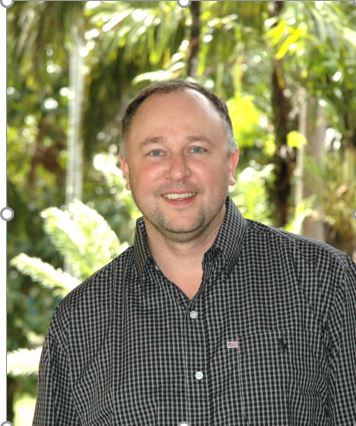Dr Simon Hodge
Simon graduated from the University of Leeds with a BSc in Zoology and then obtained a PhD from the University of Sunderland studying Drosophila ecology. He subsequently took up a position at Rothamsted Experimental Station investigating the effects of pesticides on beneficial invertebrates, followed by a stint at Imperial College London working on aphid-vectored plant viruses and the induction of plant chemical defences by insect herbivores. More recently Simon has worked at Lincoln University in New Zealand examining various aspects of sustainable and organic agriculture, such as non-chemical pest control, the potential of organically-derived fertilizers and positive interactions between plants and microorganisms. He has also developed an interest in investigating how sampling method and sampling effort can influence the perceived structure of invertebrate assemblages.
Simon is currently working as on the PoshBee project at Trinity College, which will examine the performance of honey bees, bumble bees and solitary bees across eight European countries, including Ireland. Insect pollinators around the globe are in general decline, caused by multiple factors such as habitat loss, climate change, agrochemical exposure and diseases: 30% of Ireland’s wild bee species are now considered threatened. The PoshBee project aims to quantify levels of toxins and disease in bees maintained in different agricultural settings, and identify features at both the landscape and farm scale that positively or negatively impact bee health and productivity.
Selected Publications
Andrews M, de Meyer S, James EK, Stepkowski T, Hodge S, Simon MF, Young JPW (2018) Horizontal transfer of symbiosis genes within and between rhizobial genera: occurrence and importance. Genes 9, 321
Hodge S, Merfield CN, Bluon A, Berry NA, O'Connell DM. (2018) The potential of culinary vegetable oils as herbicides in organic farming: the effect of oil type and repeated applications on plant growth. Organic Agriculture (in press)
Hodge S, Curtis N, Vink CJ, Marris J, Brown SDJ (2017) Native arthropods on exotic sand dune flowers: consideration of sample size and number for investigating rare species and sparse communities. Arthropod-Plant Interactions 11, 691-701
Hodge S, Merfield CN, Creasy GL (2017) The effect of organically derived fertilisers on early growth of Pinot noir cuttings under glasshouse conditions. New Zealand Journal of Crop and Horticultural Science 45, 223-231
Shaw MD, Szczepanski J, Murray SF, Hodge S, Vink CJ. (2017) Ideas made glass: Blaschka glass models at Canterbury Museum. Records of the Canterbury Museum 31, 5-84
Stewart SA, Hodge S, Bennett M, Mansfield JW, Powell G. (2016) Aphid induction of phytohormones in Medicago truncatula is dependent upon time post-infestation, aphid density and the genotypes of both plant and insect. Arthropod-Plant Interactions 10, 41-53
Tikoca S, Hodge S, Tuiwawa M, Pene S, Clayton J, Brodie S. (2016) An appraisal of sampling method and effort for investigating moth assemblages in a Fijian forest. Austral Entomology 55:455-462
Merfield CN, Geary IJ, Hale RJ, Hodge S. (2015) A field evaluation of the effectiveness of mesh crop covers for the protection of potatoes from tomato potato psyllid. New Zealand Journal of Crop and Horticultural Science 43, 123-133
Andrews M, Hodge S, Raven JA. (2010) Positive plant microbial interactions. Annals of Applied Biology 157, 317-320
Contact
email: hodges@tcd.ie


